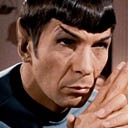Movie Review: There Will Be Blood
Paul Thomas Anderson is one of my favorite directors. The Master is one of the best directed and acted films of the decade. There Will Be Blood is right up there with it. The film tells the story of a cunning oil businessman named Daniel Plainview at the dawn of the 20th century. It is at once a grand, operatic, epic story of American business and an intimate character study. Daniel Day-Lewis very much deserved the Oscar for best actor. In particular I loved the cadence of his speech — that very deliberate, stilting rhythm that painted Plainview as a crafty image-conscious man with depths of quiet rage beneath the surface. His only soft spots are his relationship with his adoptive son and an estranged brother, both of which ultimately break down in different ways leading to a further loss of his humanity. There Will Be Blood is beautifully shot like all of Anderson’s films. The music works great to maintain the tension.
The aesthetic choices — cinematography, color grading, costuming, the use of light — they all gel beautifully to create an incredibly artful film. The story, a grand tale of ambition, loyalty, and betrayal, is worthy of its rich packaging…right up until the final coda, where the movie time skips ahead 16 years. This final section with the older and richer Plainview includes interactions with his adoptive son and a religious zealot antagonist named Eli. Neither made sense to me. The two scenes feel like they belong to a different movie. The last scene in particular, the infamous “milkshake” speech, seemed gratuitous and absurdist. I get that we aren’t meant to revere Plainview, but his actions here feel cartoonish. The treatment of his son and Eli is so over the top it just raises unanswerable questions that detract from the previous two hours of masterful story-telling. As a result There Will Be Blood falls short of Anderson’s more cohesive works like Punch Drunk Love and The Master. It’s not a must-watch, but it is mostly excellent.
Grade: B
